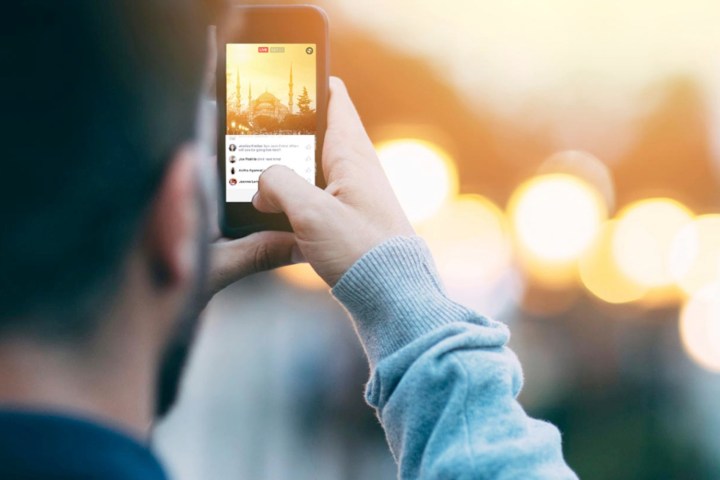
The GIF shows mesmerizing movement of the clouds, though there are a few telltale signs that the content isn’t even a video, including a small lighting bolt off to the side that doesn’t actually move. The storm footage has been shared by multiple sources as a plain video, but a page called Newsfeed decided to replay the GIF on a continuous loop using up every bit of Facebook’s four-hour limit. Some viewers caught on, while others insisted the storm was the real thing. The post has since been removed. Another page, posted the same way, generated ten million views.
The storm itself may not have been live and only a well-stitched several-second repeat, but it appears to be a real storm. The GIF can actually be traced back to storm chaser and photographer Marko Korosec, who snapped images of the storm on June 19 of 2015 while in South Dakota. Data from the National Weather Service suggests the storm was as impressive as it looked with hail and heavy winds.
Korosec shared the GIF on Instagram along with the actual date of the storm, and that the video was indeed a looping GIF and not a traditional video. The GIF was produced by Jonathan Wennstroem.
The real 2015 storm that went viral as a “live” video here in 2017 gives Facebook users another lesson in trusting online content. Facebook’s algorithm ranks live videos higher than prerecorded ones. Since live videos tend to create more engagement, some Pages pretend the videos are actually live to get that larger reach.
The social media platform announced in May plans to use algorithms to penalize “live” videos that aren’t actually live videos, intending to negate that extra reach live videos tend to generate. Using looping animations as a Facebook Live video is now against the social media platform’s policies, and Facebook says repeat offenders could lose access to live-streaming entirely.



